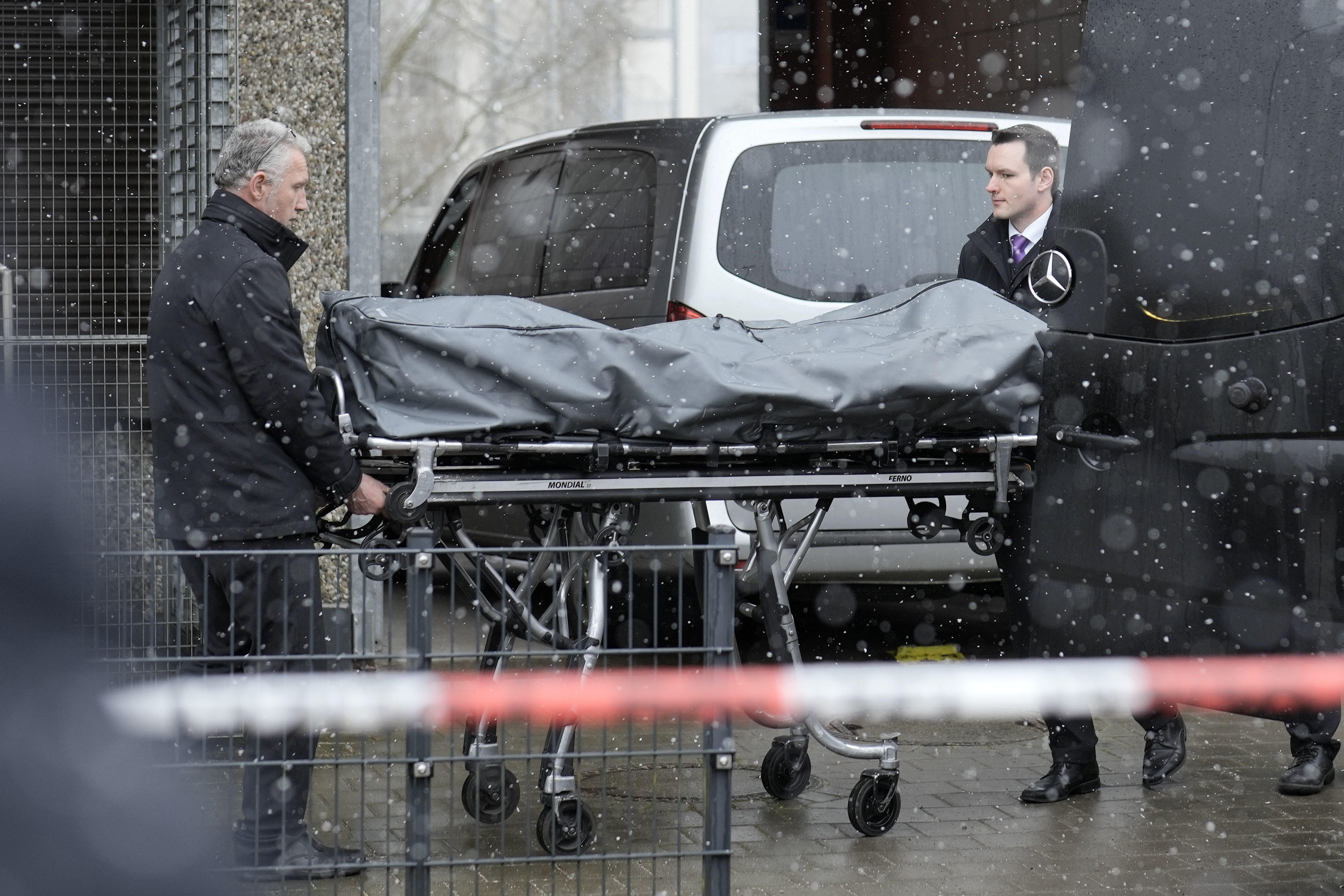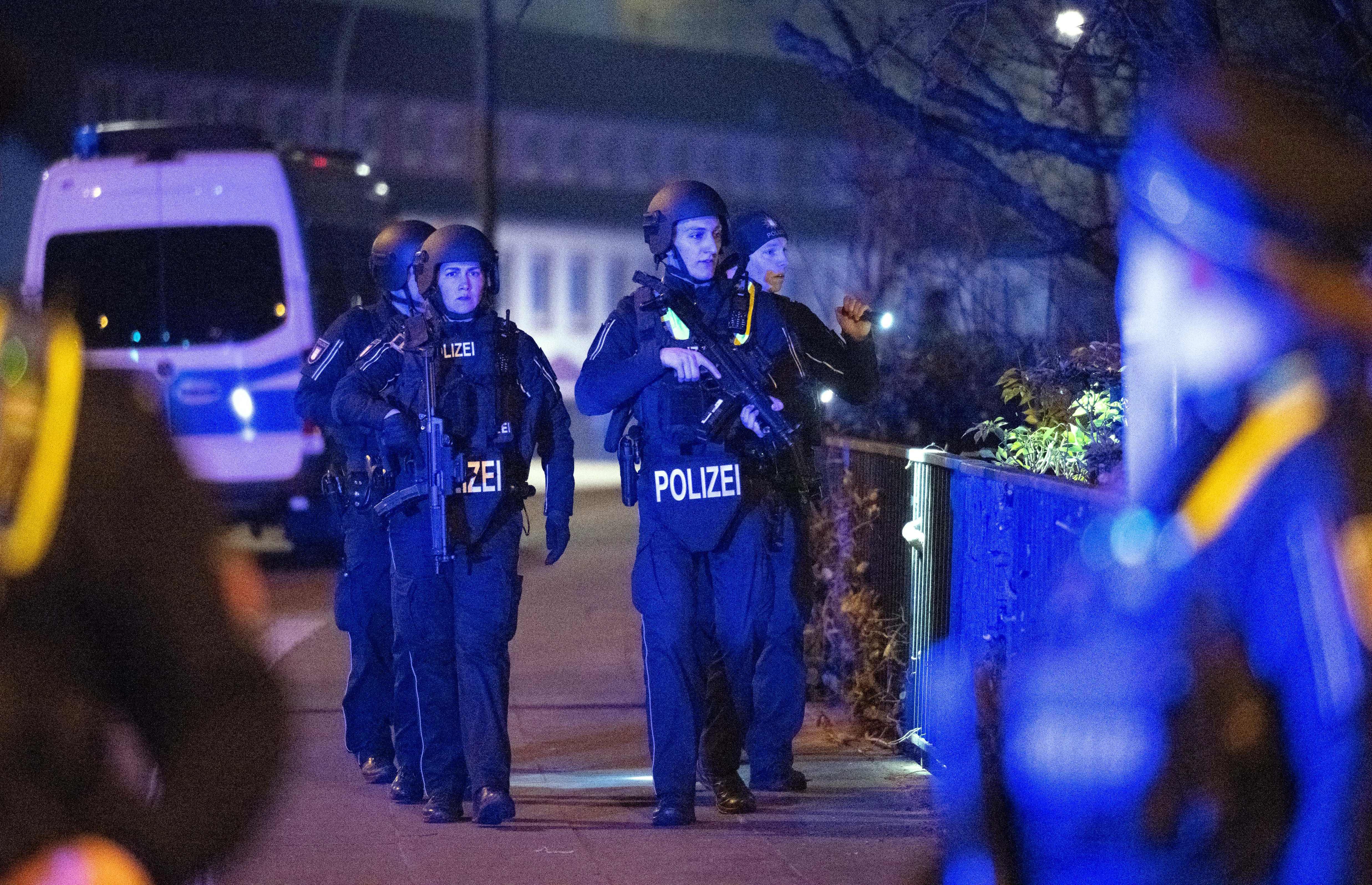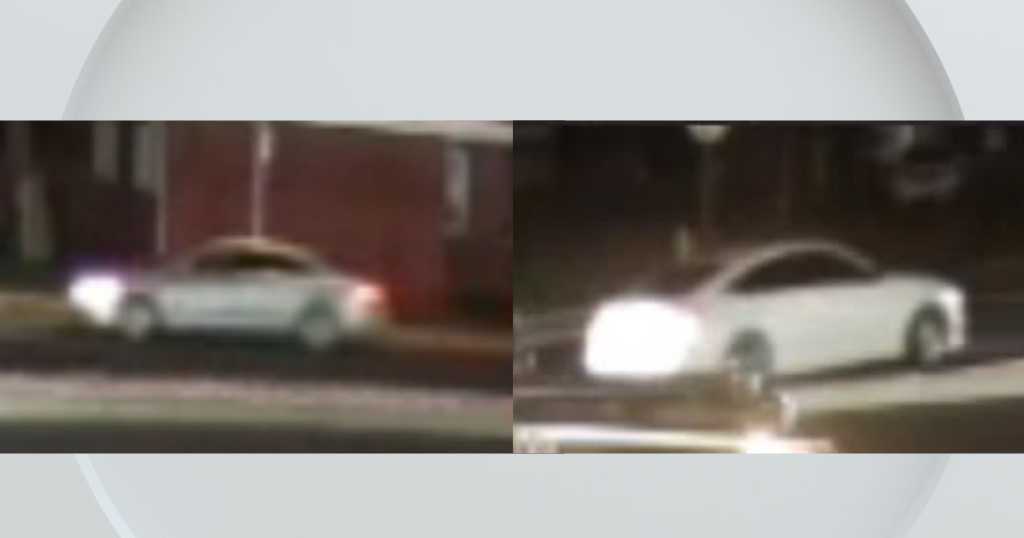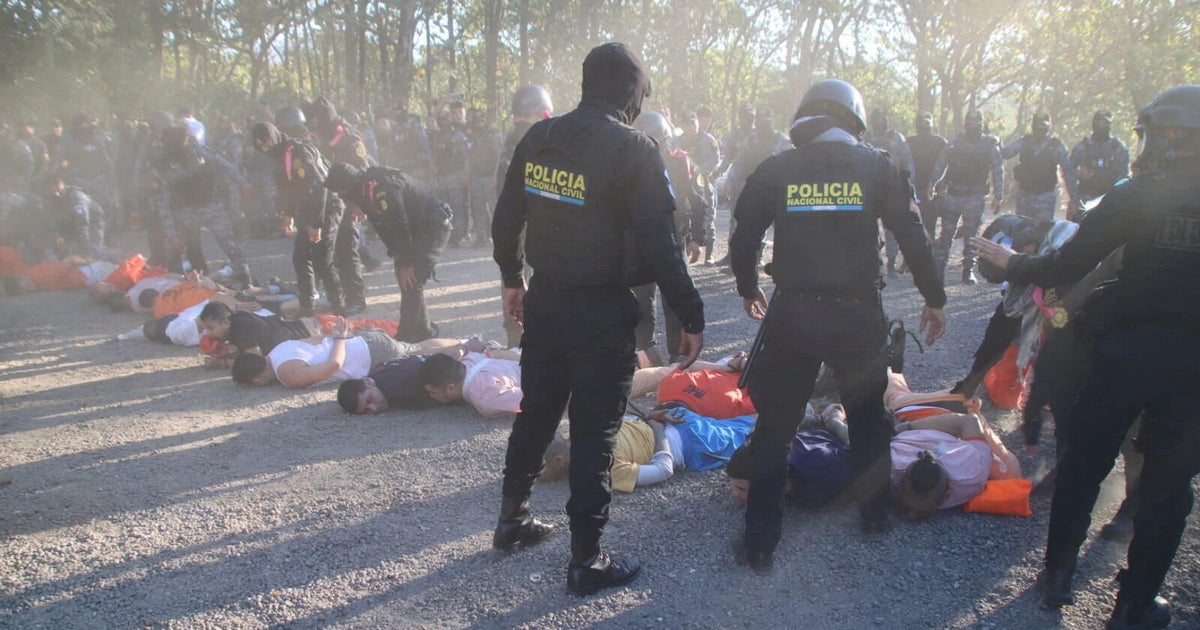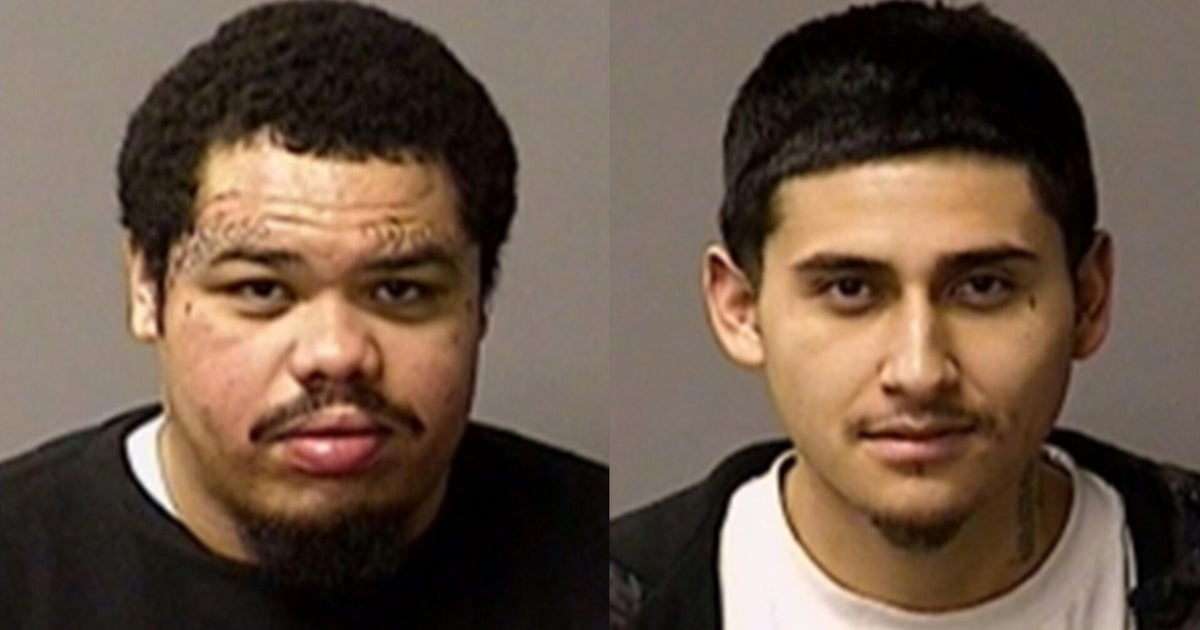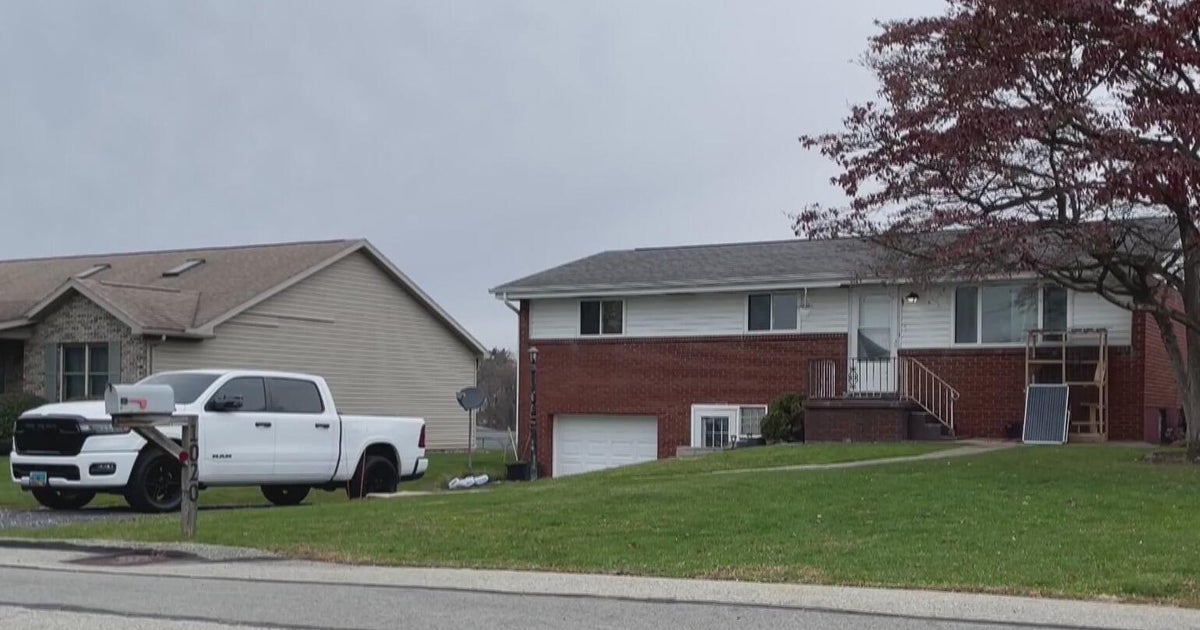6 killed in shooting at Hamburg, Germany, Jehovah's Witness hall, including an unborn child, police say
A gunman killed six people Thursday night at a Jehovah's Witnesses hall in the German city of Hamburg before apparently turning his gun on himself. The shooter was identified as a former member of the congregation, police said Friday. Four men, one woman and an unborn child were killed. Police initially said Friday that a pregnant woman had died in the attack, but they later confirmed she was among eight people wounded. Her 7-month-old fetus died.
Police identified the gunman on Friday as unmarried former church member Phillip F., and said there was no indication of a terrorist motive. They said he left the church community about 18 months ago, "but apparently not on good terms."
Police had told CBS News previously that the shooter was inside the building the entire time and there was no manhunt at any point. When officers arrived, the shooter had already died by suicide.
The police did not give any indication of a suspected motive as they briefed journalists Friday morning about the shooting that stunned Germany's second-biggest city.
German magazine Der Spiegel first reported that the suspect was "said to have been a former member of Jehovah's Witnesses... between 30 and 40 years old."
Police confirmed Friday that the gunman used a semi-automatic pistol that he was licensed to own. They said there was an anonymous letter sent to the police force several years ago claiming the suspect was mentally unstable and had shown animosity for religious followers, and that a review of his firearms licensing was carried out.
They said when questioned, Phillip F. was cooperative and gave no indication of any mental health problems, so they closed the case. He was a sports marksman.
Mass shootings are rare in Europe, where gun ownership laws are generally much stricter than in many U.S. states. There is a long and strict process in Germany to obtain a permit for a handgun.
German Chancellor Olaf Scholz, a former Hamburg mayor, described the shooting as "a brutal act of violence."
Investigators worked through the night to secure evidence. On Friday morning, forensic investigators in protective white suits could still be seen outside the building as a light snow fell. Officers placed yellow cones on the ground and windowsills to mark evidence.
David Semonian, a U.S.-based spokesman for Jehovah's Witnesses, told The Associated Press in an emailed statement early Friday that members "worldwide grieve for the victims of this traumatic event."
"The congregation elders in the local area are providing pastoral care for those affected by the event," he wrote. "We understand that the authorities are still investigating the details of this crime. We appreciate the courageous help provided by the police and emergency services."
Hamburg Mayor Peter Tschentscher tweeted that the news was "shocking" and offered his sympathy to the victims' relatives.
The scene of the shooting was the Jehovah's Witnesses' Kingdom Hall, a modern and boxy three-story building next to an auto repair shop.
Police spokesman Holger Vehren said police were alerted to the shooting about 9:15 p.m. and were on the scene quickly. On Friday morning, police confirmed they had received almost 50 emergency calls about the shooting.
Vehren said after officers arrived and found people with apparent gunshot wounds on the ground floor, they heard a shot from an upper floor and found a fatally wounded person upstairs who they suspected was a shooter. He said police did not have to use their firearms.
Student Laura Bauch, who lives nearby, said "there were about four periods of shooting," German news agency dpa reported. "There were always several shots in these periods, roughly at intervals of 20 seconds to a minute," she said.
Jehovah's Witnesses are part of an international church, founded in the United States in the 19th century and headquartered in Warwick, New York. It claims a worldwide membership of about 8.7 million, with about 170,000 in Germany.
Members are known for their evangelistic efforts that include knocking on doors and distributing literature in public squares. The denomination's distinctive practices include a refusal to bear arms, receive blood transfusions, salute a national flag or participate in secular government.
CBS News' Anna Noryskiewicz in Berlin contributed to this report.
